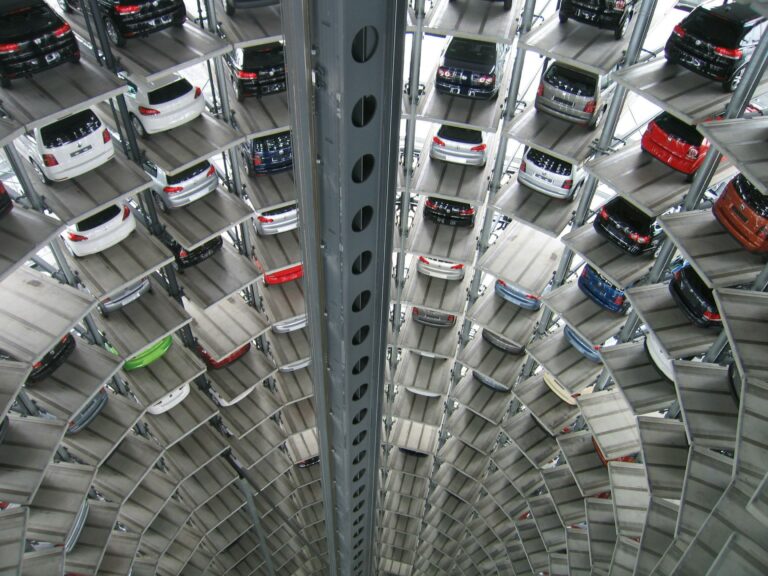The Role of AI in Autonomous Vehicle Control Systems
betbazar 247 login, playexch in login, gold365 id login:The Role of AI in Autonomous Vehicle Control Systems
Imagine a world where cars drive themselves, safely navigating through traffic, obeying traffic laws, and getting you to your destination without you having to lift a finger. This futuristic concept is no longer a distant dream but a reality that is rapidly becoming more prevalent on our roads. Thanks to advancements in Artificial Intelligence (AI), autonomous vehicle control systems are revolutionizing the way we travel.
In this blog post, we will delve into the crucial role that AI plays in autonomous vehicle control systems, exploring how these technologies work together to create a safe and efficient driving experience.
Understanding Autonomous Vehicle Control Systems
Autonomous vehicle control systems rely on a combination of sensors, cameras, radars, and AI algorithms to perceive the surrounding environment, make decisions, and control the vehicle’s movements. These systems are classified into different levels of automation, ranging from Level 0 (no automation) to Level 5 (full automation), with Level 5 vehicles being fully autonomous and requiring no human intervention.
AI algorithms are at the core of autonomous vehicle control systems, enabling vehicles to interpret sensor data, identify objects in the environment, predict the behavior of other road users, and make real-time decisions to navigate through complex scenarios such as intersections, lane changes, and merging onto highways.
The Role of AI in Perception
Perception is a critical component of autonomous vehicle control systems, as it enables vehicles to understand and interpret the world around them. AI algorithms play a crucial role in processing data from sensors such as cameras, radars, and LiDAR (Light Detection and Ranging) to create a detailed representation of the vehicle’s environment.
These algorithms use techniques such as object detection, tracking, and classification to identify pedestrians, vehicles, traffic signs, and other objects in the environment. By analyzing this information, autonomous vehicles can make informed decisions about their surroundings and react accordingly to ensure safe and efficient navigation.
The Role of AI in Decision Making
Once autonomous vehicles have perceived their environment, they must make decisions based on this information to navigate safely and efficiently. AI algorithms are used to process sensor data and interpret complex scenarios, such as predicting the intentions of other road users, understanding traffic patterns, and planning optimal routes.
These algorithms utilize machine learning and deep learning techniques to analyze vast amounts of data, learn from past experiences, and make decisions in real-time. By continuously updating their knowledge and adapting to changing conditions, autonomous vehicles can optimize their behavior and respond effectively to various driving situations.
The Role of AI in Control
In addition to perception and decision-making, AI plays a crucial role in controlling the vehicle’s movements to ensure smooth and safe navigation. Control algorithms are responsible for steering, accelerating, and braking the vehicle based on the decisions made by the AI system.
These algorithms use feedback loops and predictive models to adjust the vehicle’s trajectory, speed, and acceleration in response to changing road conditions and external stimuli. By constantly monitoring the vehicle’s state and environment, autonomous vehicles can maintain stable and precise control over their movements, reducing the risk of accidents and improving overall safety.
Challenges and Opportunities
While AI has the potential to revolutionize autonomous vehicle control systems, there are still many challenges that need to be addressed to ensure their widespread adoption. Issues such as cybersecurity, ethics, regulatory frameworks, and public acceptance pose significant hurdles to the deployment of autonomous vehicles on a large scale.
However, these challenges also present opportunities for innovation and collaboration across industries to develop safer, more efficient, and sustainable transportation solutions. By leveraging the power of AI and advanced technologies, we can create a future where autonomous vehicles play a significant role in shaping the way we move and interact with our environment.
In conclusion, AI is a fundamental component of autonomous vehicle control systems, enabling vehicles to perceive their environment, make decisions, and control their movements autonomously. By harnessing the power of AI algorithms, we can create safer, more efficient, and smarter transportation systems that revolutionize the way we travel. The future of autonomous vehicles is within reach, and AI is paving the way for a world where cars drive themselves, making our roads safer and our journeys more enjoyable.
FAQs
Q: How safe are autonomous vehicles compared to human drivers?
A: Autonomous vehicles have the potential to be much safer than human drivers, as they do not suffer from fatigue, distractions, or human errors that can lead to accidents. However, the technology is still in its early stages, and more research and testing are needed to ensure the safety and reliability of autonomous vehicles.
Q: Will autonomous vehicles replace traditional cars in the future?
A: While autonomous vehicles are gaining momentum and are likely to become more prevalent on our roads, it is unlikely that they will completely replace traditional cars in the near future. Both autonomous and traditional vehicles are likely to coexist, offering consumers a choice between manual and automated driving depending on their preferences and needs.
Q: What are the ethical considerations of autonomous vehicles?
A: Autonomous vehicles raise various ethical questions, such as who is responsible in the event of an accident, how to prioritize the safety of different road users, and how to address issues of privacy and data security. These ethical considerations are essential in shaping the development and deployment of autonomous vehicle control systems and ensuring that they benefit society as a whole.
Q: How will autonomous vehicles impact the transportation industry?
A: Autonomous vehicles have the potential to transform the transportation industry by improving safety, reducing traffic congestion, and increasing mobility for people who cannot drive, such as the elderly and disabled. They could also revolutionize logistics and delivery services, optimizing routes and reducing costs for businesses. Overall, autonomous vehicles have the potential to create a more efficient, sustainable, and equitable transportation system for the future.







